TODAY webinar: Panellists say S377A repeal helpful but more mindful dialogue needed over LGBTQ issues
SINGAPORE – The repeal of Section 377A has paved way to a more inclusive society but more should be done to adopt healthy dialogue practices and attitudes to create safe spaces for conversations, said panellists at a TODAY Instagram Live webinar on Monday (Nov 14).
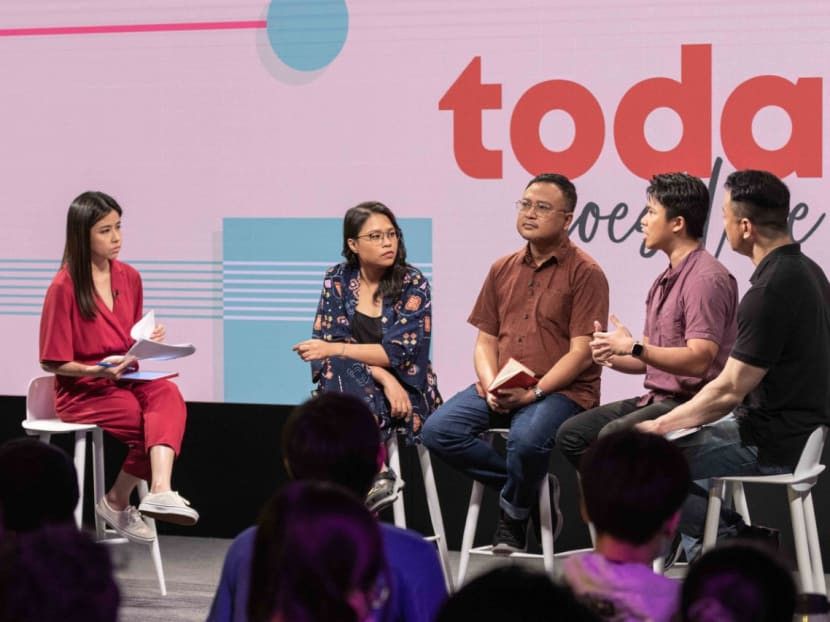
The TODAY Live webinar session on Nov 14, 2022 addressing the question: Should we agree to disagree on LGBTQ issues?
- The second instalment of TODAY’s four-session Live webinar series discussed how to find common ground despite holding differing views on LGBTQ issues
- TODAY’s webinar series, which is in its third year, tackles issues that emerge from TODAY Youth Survey 2022
- Panellists agree that while changes have been made at the policy level, more should be done to address discrimination that exists at the individual, social and cultural level
SINGAPORE — The repeal of Section 377A has paved the way to a more inclusive society but more should be done to adopt healthy dialogue practices and attitudes to create safe spaces for conversations, said panellists at a TODAY Live webinar on Monday (Nov 14).
There is a need to be more mindful when engaging in dialogue, particularly on contentious issues such as those affecting the lesbian, gay, bisexual, transgender and queer (LGBTQ) community, and to be brave in confronting one’s own assumptions about others, they added.
The comments were made during the second instalment of a series of four live webinars, which cover topics emerging from the results of TODAY Youth Survey 2022.
This is the third year running that the TODAY Live webinar series has been held. This year's webinar series was conducted for the first time in a hybrid format — with a live audience comprising about 50 youths from tertiary institutions and secondary schools, while being streamed live on TikTok and Instagram.
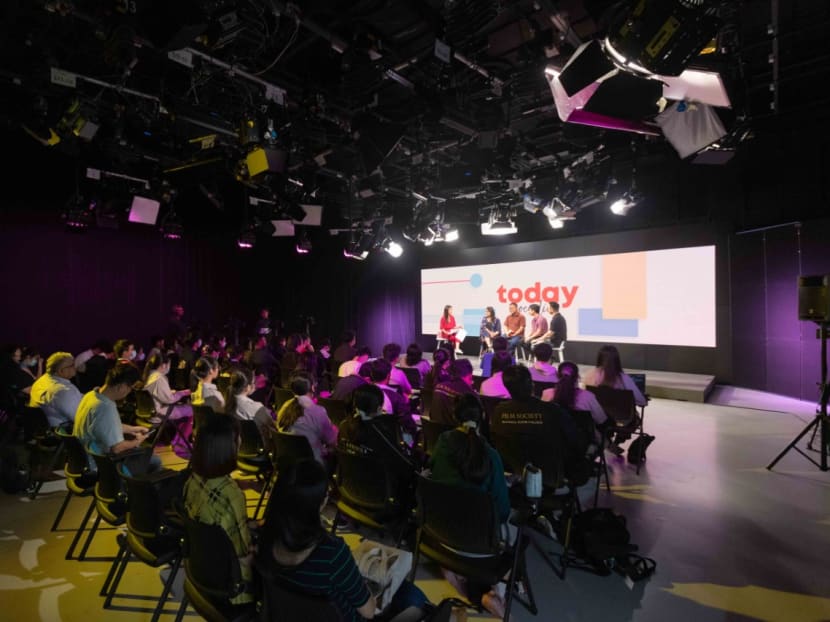
TODAY Youth Survey 2022 found that while 68 per cent of youth respondents agreed that the repeal of Section 377A, which criminalises sex between men, is a step towards a more inclusive society, the majority still wants to protect the definition of marriage between a man and a woman.
Speaking on the topic: "Should we agree to disagree on LGBTQ issues?", the panellists — which included a Pink Dot SG spokesman and an assistant pastor — spoke about their personal experiences and shared strategies to find common ground between people who may hold different opinions.
EXPANDING ‘SAFETY’ TO INCLUDE MENTAL WELL-BEING, CREATING SAFE SPACES
In discussing an inclusive society that is safe for all, the definition of safety should be expanded beyond just physical safety, said Pink Dot SG spokesman Clement Tan.
While he acknowledged that Singapore is safer for LGBTQ people than countries where they may experience physical violence, these individuals may still face discrimination and prejudice in social and cultural spaces such as homes, schools and workplaces, which can affect their mental well-being.
The other three panellists generally agreed that the LGBTQ community had suffered harm in the past, and may still be experiencing discrimination in their personal environments.
Recalling his personal experiences as someone who has been experiencing same-sex attraction since he was aged seven, panellist Chang Tou Chen — an assistant pastor at the 3:16 Church — said that in the past, there was a real risk and fear of being caught in police raids at gay bars.
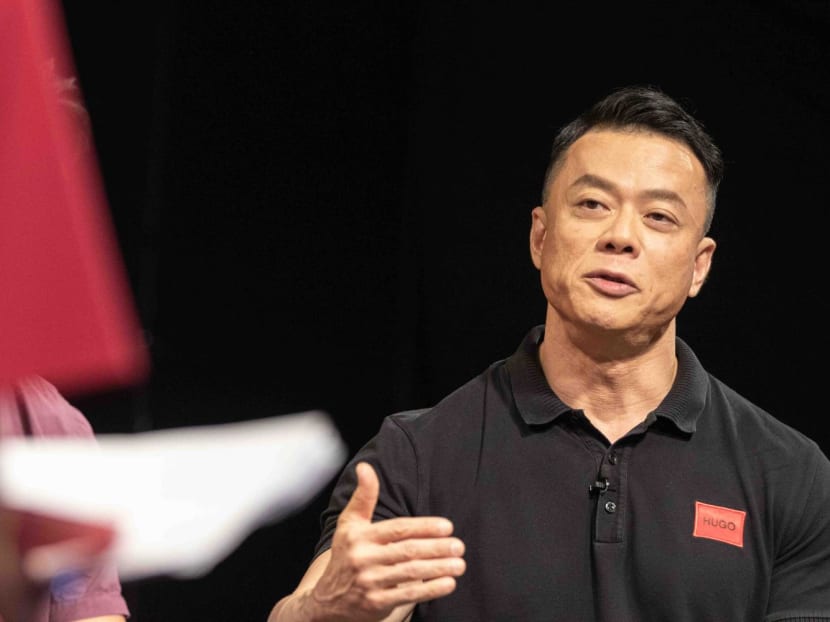
In creating a safe space for everyone to engage in dialogue, another panellist, Mr Imran Mohamed Taib, an interfaith advocate who is also director of the Dialogue Centre, also said that it is also important to check on one’s own privilege.
This could make one unaware of the consequences of one's words on others, a lead to an unsafe environment for constructive dialogue, he added.
LABELLING UNHELPFUL, BUT CAN BE PROVOKED BY 'STANDPOINT OF INJURY'
One type of behaviour that is unhelpful in engaging in constructive dialogue is labelling, said Mr Chang, who shared his encounters with people who were left as outcasts and labelled “homophobic” for holding different views about LGBTQ people.
While Mr Imran agreed that there have been instances where people have been labelled as “homophobes” easily, he said that there is also a need to reflect on what could have caused the labelling, as it could come from a “standpoint of injury”.
Sharing a personal anecdote, he said: “If you have lived your whole life being told of your unworthiness, or being labelled with stereotypes that can be dehumanising, and if I were to say something that I was not mindful of, that might provoke a reaction.
“If you have lived your whole life being told of your unworthiness, or being labelled with stereotypes that can be dehumanising, and if I were to say something that I was not mindful of, that might provoke a reaction.Mr Imran Mohamed Taib, director of Dialogue Centre”
"I have been called a ‘homophobe’ simply for using certain terms that ought not to be used, and I wasn’t aware of how painful those terms are. But I learn through that process,” he added.
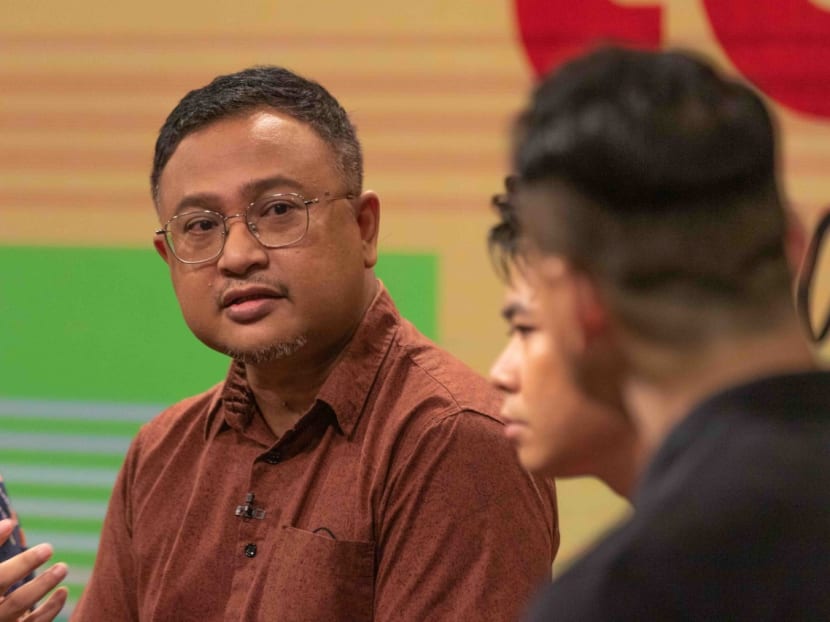
Being mindful of others in a dialogue also means acknowledging the diverse experiences of people, even within the LGBTQ community, said another panellist, TODAY Senior Journalist Nabilah Awang.
According to Ms Nabilah, she has met LGBTQ individuals who were also religious and actively seek religion.
This may cause them to struggle with their identities and create internal conflict, especially in dealing with people within their community.
ENGAGING IN CONSTRUCTIVE DIALOGUE
In response to a question from the online audience on the strategies that have worked to bring people of different views to discuss contentious topics as LGBTQ rights in Singapore, Mr Imran said that he brings in participants’ lived experiences instead of discussing issues in abstract terms.
Participants are also given the space to engage in deep reflections of their own processing experiences.
This requires courage to see how much other people’s stories can transform their own opinions, and to uncover their blindspots and stereotypes that they may have about others.
He added that participants should also be careful with the language that they use, and gave the example of “cancel culture”.
While he acknowledged that “cancel culture” is a form of mob mentality that does not allow space for people to learn from their mistakes, he said that the term had a specific meaning, and should not be misused.
“What I am seeing is that it (cancel culture) is used loosely to shield one’s own opinion from any kind of criticism, just by simply saying, 'Oh you are cancelling me'.''
But in reality, it is not happening because people still have the platform as well as the resources to say the kind of things that they want to say.
"We really have to look at the specifics of the case and how we must not fall into this trap of looking at any form of criticism against our ideas as a form of cancelling,” said Mr Imran.
FINDING COMMON GROUND
Responding to another question on how an understanding can be reached between LGBTQ and non-LGBTQ people who may hold different beliefs, Mr Tan said that more conversations are necessary to find common ground.
He added that disagreements within society should not be ignored, and instead address these points of contention and what should be done to move forward together.
“With time, I do think that there is a way we can reach forward. We don’t know what that looks like now, but clarity comes with time, and it also happens with more conversations,” said Mr Tan.
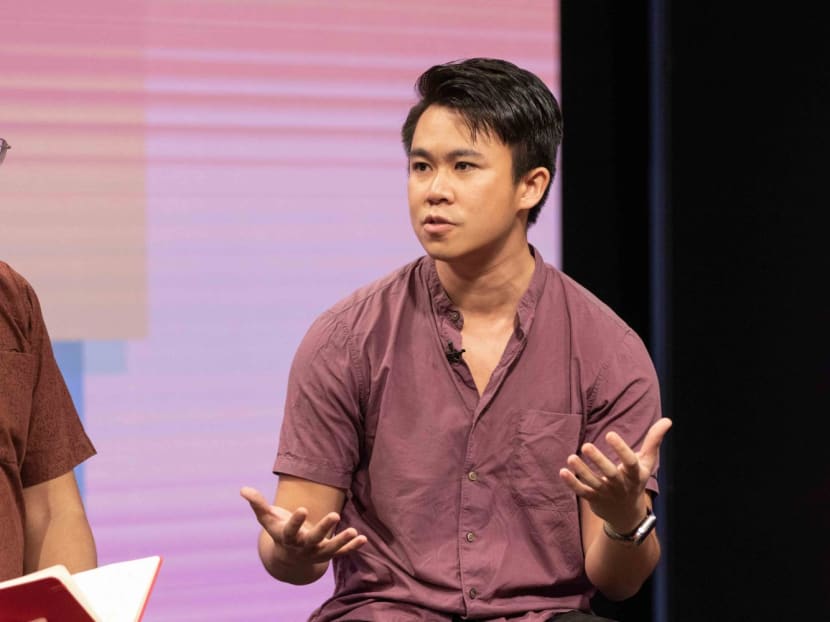
Differences may also come from a place of love, said Mr Imran, sharing that parents’ initial rejection to their child coming out could be due to a fear of losing their child.
He added that the values of secularism as practised in multi-religious Singapore society can be applied in discussions on LGBTQ issues.
Just as differences in religious ideology and beliefs do not curtail freedom of religion, differences in opinion on LGBTQ issues should also not curtail the rights of LGBTQ persons.
Youths who were part of the webinar’s live audience also agreed that conversations between people with different views were necessary.
“This (discussion) is a first step in the right direction, and there should be more of it. And I believe there will be more in the future,” said Krishnan Adaikkappan, 17, a student from National Junior College (NJC).
During the webinar, the youths were invited to ask their questions through the Slido website for panellists to respond.
Another NJC student, 17-year-old Lee Zhe Feng, said that he appreciated the balanced discussion. Nevertheless, he said he would prefer having the live audience pose their questions directly to the panellists, so that they could ask follow-up questions or engage them further.











